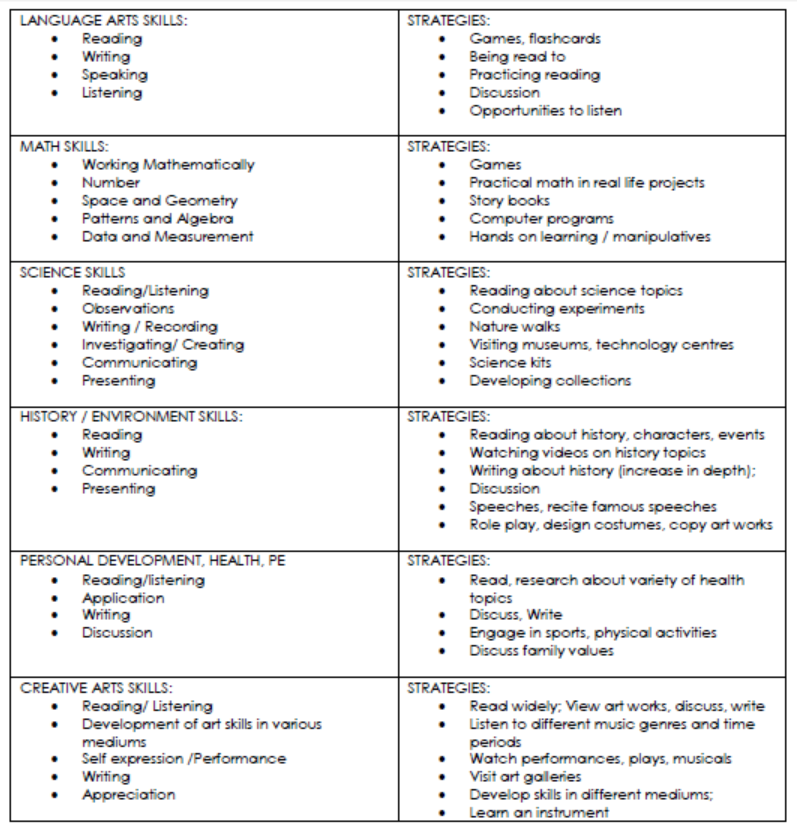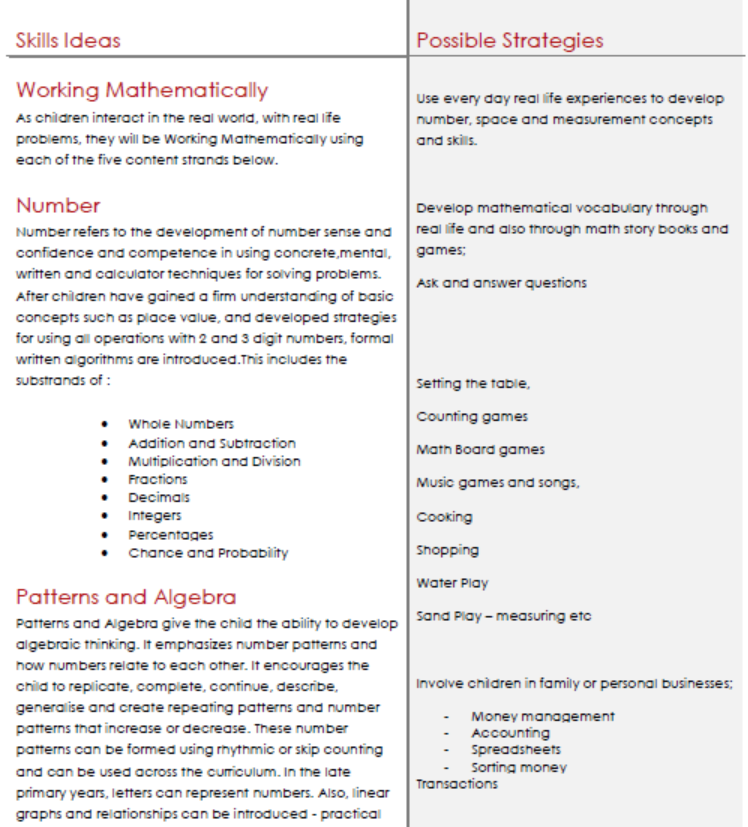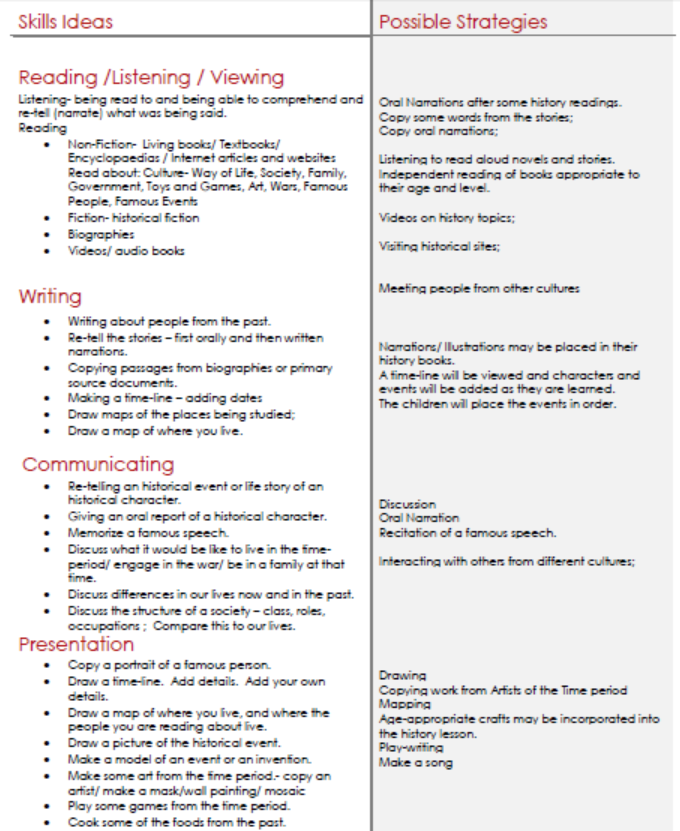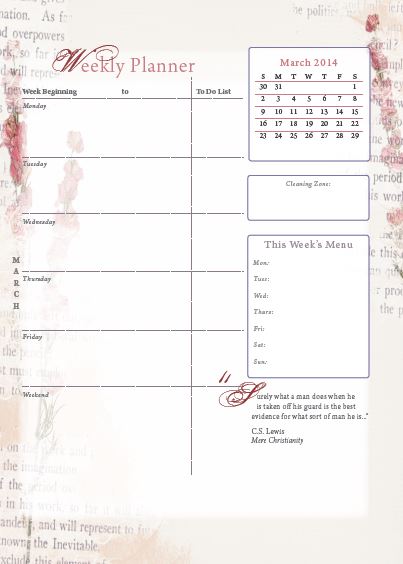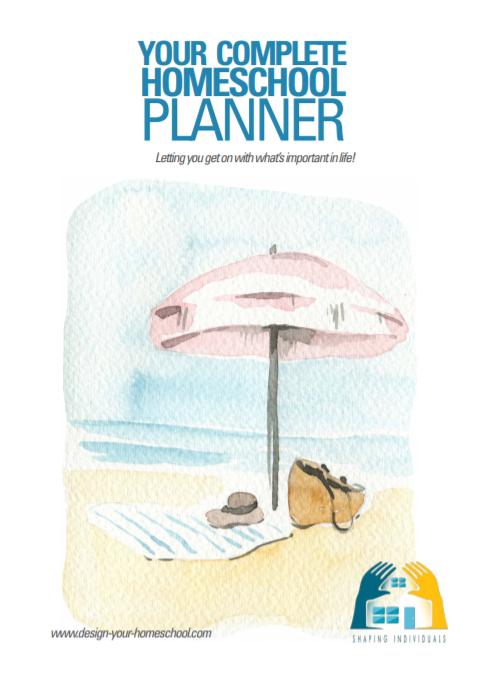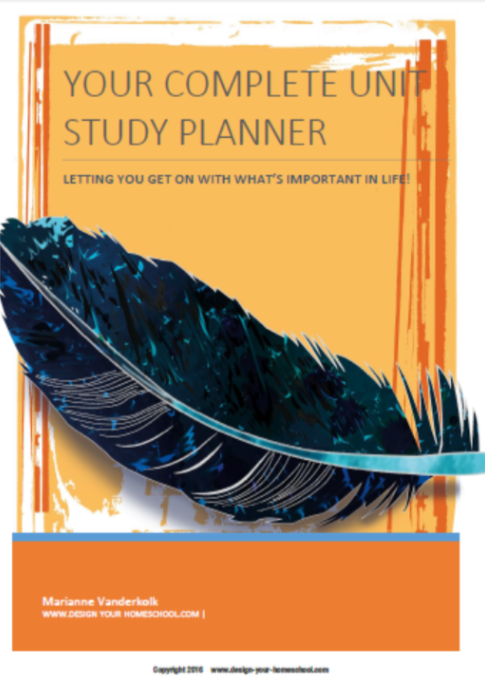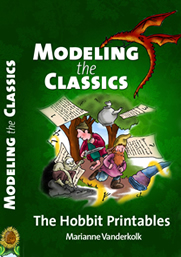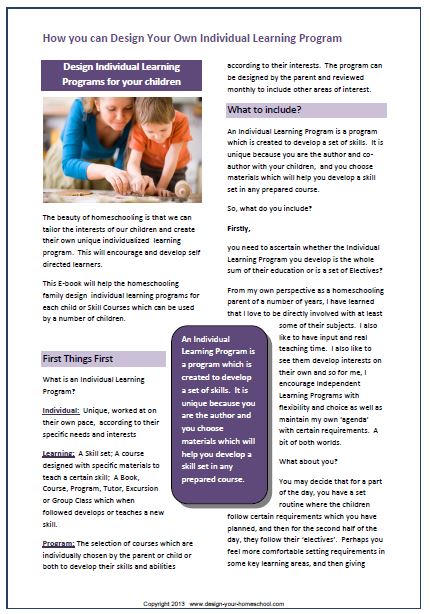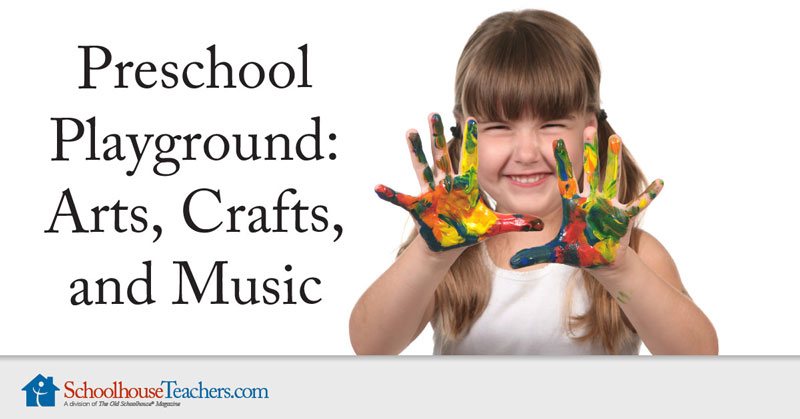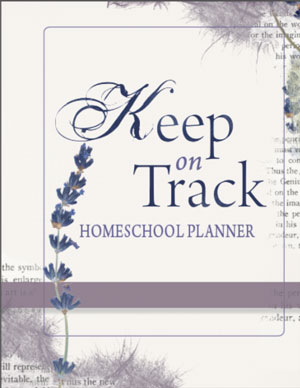- Home
- Homeschool Australia
Homeschool Australia - NSW Registration Help

Are you homeschooling in NSW (New South Wales), Australia? Many people are finding the whole homeschool registration process a stressful event. My advice - don't stress - just be as prepared as you can by knowing what you're doing and expressing it in your words.
This page outlines how you may choose to write a program of study in each of the key learning areas. To prepare your program of study for your family's homeschooling life, I would firstly encourage you to set personal family goals.
Once you have considered your goals, you should be able to continue and complete the outline of this program of study which will become an important statement for your family as to where you are headed, what goals you set out to achieve, materials you may use and the methodology you will choose to complete your goals.
Other things to consider when you're beginning homeschooling - is your approach and finding, tweaking the approach to suit your family's needs, interests and situation.
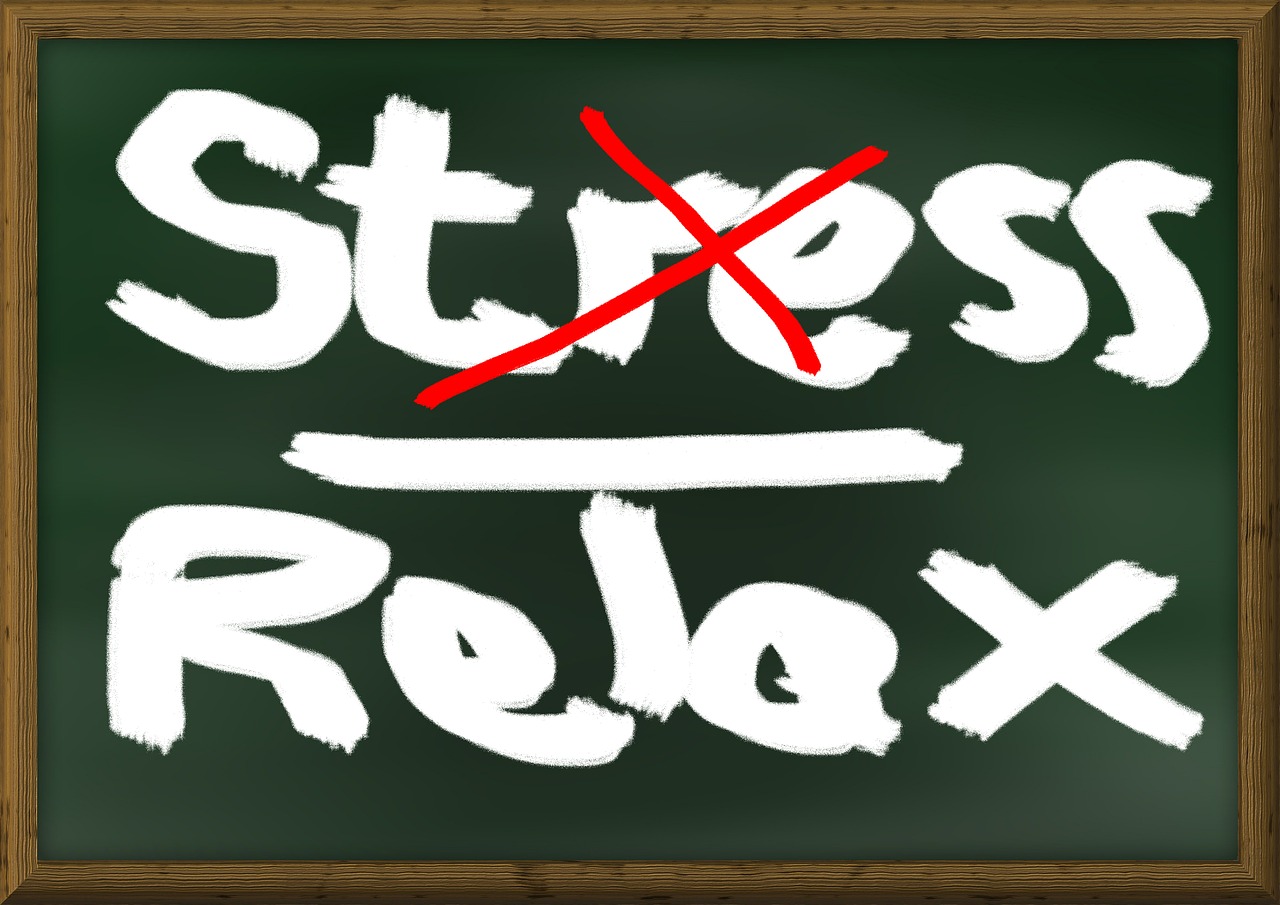
You do not need to have one of these programs for each child. Most of the details that you complete can be generic for the whole family. When you add, "Resources", you may differentiate between what each child will use, if this makes sense in the way you are homeschooling.
The Registration Process and AP Visit
When you've decided to homeschool, it's best to get yourself ready for the registration process by creating the documents needed. That's what I'll help you with in the next section.
To apply for registration, you can download the registration form - either to re-register or for your initial registration.
Within a few weeks, an approved person (AP) from NESA will contact you to make an appointment to discuss your plans. Currently, these meetings are done online. You may be requested to send in your documents, but it is fine to advise the approved person that you'd prefer to discuss it during the meeting.
The approved person will request to see your:
- Educational Plan based on the NESA syllabus
- Plan for the next educational period
- Record of progress (if you've been homeschooling already)
- Records of time allocated to learning. - keep this general. (Home schooling is not schooling at home, so you do not need to spend the same amount of time on subject areas that they do in school.)
Documents to help you prepare your Homeschooling Program
NOTE: This document is not an official or prescribed program for registration in NSW. This is a suggestion only. It needs to be modified to suit your family; You do not need to include everything listed here.
Since many families have found this outline to be helpful in their homeschool planning, I have decided to explain it in more detail and provide links to the downloadable documents for those wishing to register for homeschooling in New South Wales, Australia. May be used by others and modified to suit.
To help you create this homeschooling program, I have created a number of Word Documents that you can edit in order to make your own program. I have personally met with the NESA and showed this document explaining that I hope others may find it useful as a guide to prepare their own plan. They expressed that they were happy for others to use this as a guide.
The simplest and my preferable document is one which uses the Objectives from the NESA's Syllabus. The Objectives are broader and more general. This document entitled, "Writing your own Program of Study - NSW.docx" can be used for all children, across all the ages. I would encourage you to use this.
Are we strangling our own freedom by being too specific?
The more specific we become in our programs - trying to match our teaching to each outcome statement, the less freedom we will enjoy. Keep things broad and general and we can get on with teaching ... and as we write what we are planning to do, we will find that our educational plans easily equate a quality education.
It actually disturbs me to see Australian home educators so concerned about linking to the outcomes as well as to the content. Our focus must remain on education - and to do so, we need to continue to teach in freedom, educate to our children's interests and to our family's goals and you will find - that the education they receive will have no trouble meeting NSW Objectives.
Below, you will find Word Documents for those who wish to use the Stage Statements. I have created these documents for Stages 1 - 5 across the 6 Key Learning Areas. If you choose to use these programs - you will need to be more specific and write different programs for different children. Stage Statements are summaries of the content for each subject for each stage.
My first preference is to use the Program written to the Objectives and then secondly, the Stage Statements as they are still broader than the outcomes.
You will find all of the Word Documents in a .zip file. There are six documents in the zipped file. Open it and then "Extract All". Download here: Documents to help write a program in NSW.
The files contained in the zip folder are:
- Writing your own program of study - NSW (refers to Objectives - as a cover page - my preferable document)
- Writing your own program of study - NSW - Stage 1
- Writing your own program of study - NSW - Stage 2
- Writing your own program of study - NSW - Stage 3
- Writing your own program of study - NSW - Stage 4
- Writing your own program of study - NSW - Stage 5
How do I prepare a Program of Study for Registration in NSW?
Follow these steps to print this guide - and make it your own.
My suggestions here are very similar to what I say on the homeschool planning page, however, on this current page, I will be addressing how to write a program according to the six Key Learning Areas as defined by NESA - for homeschool registration in NSW.
Create this document first and foremost for your family!
I would like to urge you to create this document first and foremost for your family. This is your working document of what you plan to do - Don't prepare it for the governing authorities - prepare it for your family! Most of the components in the program of study will not need to be updated or changed - except for the specific resources you will be using over the years. If your methodology or goals change, you can add, delete and change accordingly.
For the purpose of registration, you may like to use the format and display it as described in the downloadable document. This is only a suggestion. Please modify it to suit yourself. I have used this format so that individual families can show that home education is different for each family and so the reasons, methods, resources and experiences will be different. I hope that you find that it is a flexible document which helps you think through home education and allows you to express it in your own way.
Displaying the Program of Study
Here is a suggestion on how to display your program. It is an optional extra to add your Philosophy of Education.
1. Your Philosophy of Education (optional, but you might find this helpful!)
Your "Philosophy of Education" may sound somewhat daunting - but really it means how you view education. I would recommend that you consider writing out your own philosophy and then deciding whether or not to include it officially in your program. It will be a worthwhile exercise for you to really think through your reasons and methods and you may find it a source of encouragement for yourself, when struggles come.
With the help of other long term homeschool mums, I have collated ideas and written an explanation of how to write your own philosophy. This is where you may choose to:
- Write your reasons for home education;
- Write your big goals, aims for your family and for your children;
- Write your educational approach: Natural learning, Experiential learning, Delight Directed, Charlotte Mason Approach, Unit Study Approach, Living Books, Textbooks, Distance Education...
- Write the way in which you may record their learning - photos, blog, scrapbooks, journaling, checklists etc
- Write the different activities your children will be involved in (social clubs etc)
- Write book titles you are reading for your own educational development;
- Write some educational quotes which sum up your philosophy of education;
- Quote the NSW Education Act - especially this section:
Part 2 Objects of Act
4 Principles on which this Act is based
In enacting this Act, Parliament has had regard to the following principles:
(a) every child has the right to receive an education,
(b) the education of a child is primarily the responsibility of the child’s parents,
5 Principal objects of this Act
The principal objects of this Act are as follows:
(d) to allow children to be educated at home,
2. The Six Key Learning Areas - detailed explanations
The next part of your program explains how you will address the six Key Learning Areas. If you are homeschooling somewhere other than NSW, you will still find that the document could be tweaked for you.
Primary Key learning areas:
- English
- Mathematics
- Science and Technology
- Human Society and its Environment – HISE (history, geography, economics, and civics)
- Creative and Practical Arts (fine arts, drama, dancing, and music)
- Personal Development, Health and Physical Education – PDHPE (health information and physical education)
- Languages (optional).
High School (Years 7-10) Key learning areas:
Compulsory Subjects
- English,
- Science,
- Math,
- HISE (history, geography, economics, and civics)
Electives Subjects (Choose 2)
- Creative and practical arts
- PDHPE
- Languages
- Design and Technology
Each Key Learning Area is divided into explanatory paragraphs which you need to edit for your family.
They include:
- Objectives from the NESA Syllabus (or Stage Statements if you prefer)
- Your Foundation Statement (this is optional but I have found it helpful)
- Methodology - how you will teach; how you will help your children learn; methods you will use;
- Resource List - what materials, experiences etc you will use;
- Ways to record progress - how you will measure their learning - presentations, photos, conversations, blog, journaling, diaries etc
You may choose to add this Skills and Strategies Appendix to your program or you can just print it out and use it for reference. It is organized under the Key Learning Areas and it suggests a bunch of ideas - ideas to present the learning, or experiences your child can be involved in.
A Homeschool Planner
While this is not a necessary document for registration purposes, I have found that having a homeschool planner has helped to keep me on track and organized. I have always enjoyed working in an A4 planner so I have enough space for all of my children and ideas etc - and as my children grew, they also had their own planner with their tasks outlined in this.
Check out my Homeschool Planners here:
- DIY Complete Homeschool Planner 2021-2022 - a ton of templates to choose from; download and print as needed
- Keep On Track Homeschool Planner - just print off as it is; generic planner, no dates
- Student Homeschool Planner
Skills and Strategies Appendix
On my page about simplifying homeschooling, I speak about considering the big picture of education and that in reality, there are certain skills that we would like our children to learn. To help you gain an understanding of what I mean, I have written a 24 page Skills and Strategies Document showing the range of skills and strategies and how your children can learn these skills across the subject areas over many years.
The Big Picture Skills of education, I believe can be summarized as:
- Reading for research, pleasure and comprehension.
- Communicating (Speaking and Writing)
- Mathematical, Reasoning and Thinking Skills
Keep reading about how to focus on skill development as a way to simplify homeschooling.
If we have this as a basic overview - we can take a step back and view our child's education with a broader perspective in mind.
In this Skills and Strategies Document - I have listed skills (not the definitive list by any means!) and age-appropriate strategies and suggestions to help your family develop some of the above skills. Please contact me if you'd like a copy of this document.
I hope this Skills and Strategies Resource will help you think outside the box, contemplate new ideas, but most of all, will help simplify homeschooling in your family.
Here are a few examples from the Skills and Strategies Document:
Skills and Strategies across Key Learning Areas
When can you begin to homeschool?
Home education is a legitimate option so you can remove your children from school as needed. It is suggested that your plan needs to be fully approved before your child can be removed from school and to avoid difficult situations, it may be best to move ahead with the registration process and get your documentation in order before you mention it to the school.
However, if it is crucial that a child is removed immediately, some parents request a Doctor's certificate for their child's leave before the registration is officially approved.
What is the cost of homeschooling?
Cost in $$
Home education is a legitimate choice of education and you are free to apply to homeschool, but you will not be paid by the government. Some families may be eligible for Centrelink payments so it's worthwhile to check that out.
Every family educates their child uniquely and with different resources. It is possible to educate with limited resources, shared resources and a good library. It's amazing how many resources are free! You can create your own curriculum (that's what this website is all about), but you'll still need books and equipment. It's a good idea to find out what others use (and share resources from other families) and also creatively use books you have on your shelf or ones you find at the second hand bookshop.
There's no limit as to what you can spend on home education, and what I've loved about it, is that the resources you do buy - are yours to keep - so fill your home with great living books, literature and materials/equipment that can be used with multiple children. (Remember, that birthdays are a great time to buy a fun science kit or real world tools! ) :)
Other Costs?
What are the other costs involved in homeschooling?
There are significant costs to homeschool which do need to be considered by each family. There's a potential loss in income; huge involvement in time - not only in the day to day homeschooling, but in preparation and research; change in some social groups / meetups; FOMO - for mums - "first day of school" "school photos" "grandparent's day" "school socials" etc.
However, the costs may be substantial, but there is no teacher that will love your children like you do!
I have a whole page of the benefits of homeschooling - check it out!
What about HSC and University?
When homeschooling, you can study the HSC courses, but you are not able to receive the HSC.
However, this does not limit entry into university. There are many, many homeschoolers who go on to university and there are many different pathways to get there. HSC is one avenue, but we are definitely finding that many young adults get to university without HSC.
If your child is interested to pursue a career that requires university education, consider alternative pathways with the end in mind.
Some alternative pathways include:
- Pathway Courses to University
- TAFE Courses - a great variety of Cert III, Cert IV (Cert IV is usually equivalent to HSC; Diploma is usually equivalent to 1st year university and may be acknowledged as Prior Learning for the first year of a Degree)
- Open University (no prior qualifications needed; no age barrier)
- Keep a Portfolio of work
- Auditions - be prepared to audition
- STAT test alone - often age restrictions on this, so check first if this is suitable to your situation.
Am I qualified to teach my children?
We all feel unqualified for such an enormous task. Thankfully we have a God who equips us!
James 1:5 NIV:
If any of you lacks wisdom, you should ask God, who gives generously to all without finding fault, and it will be given to you. If any of you lacks wisdom, you should ask God, who gives generously to all without finding fault, and it will be given to you.
